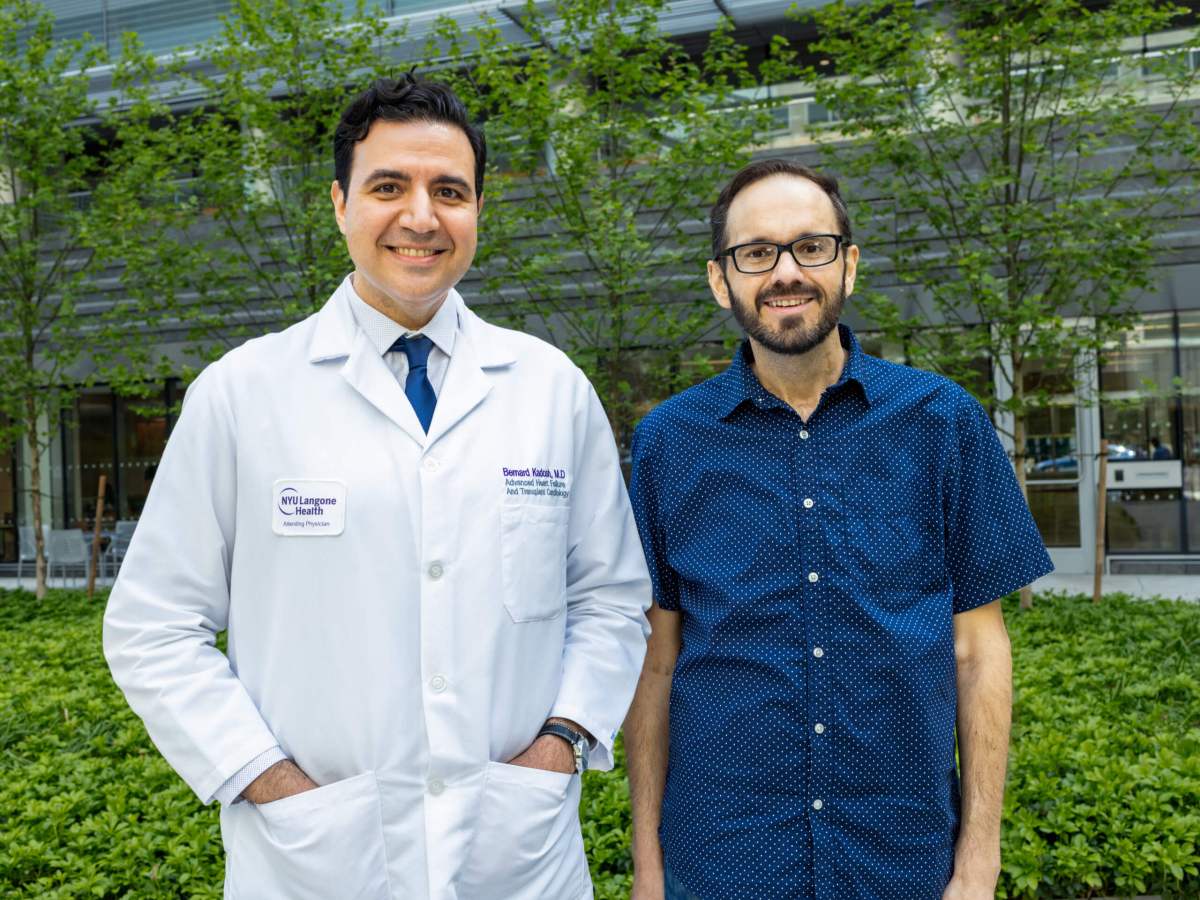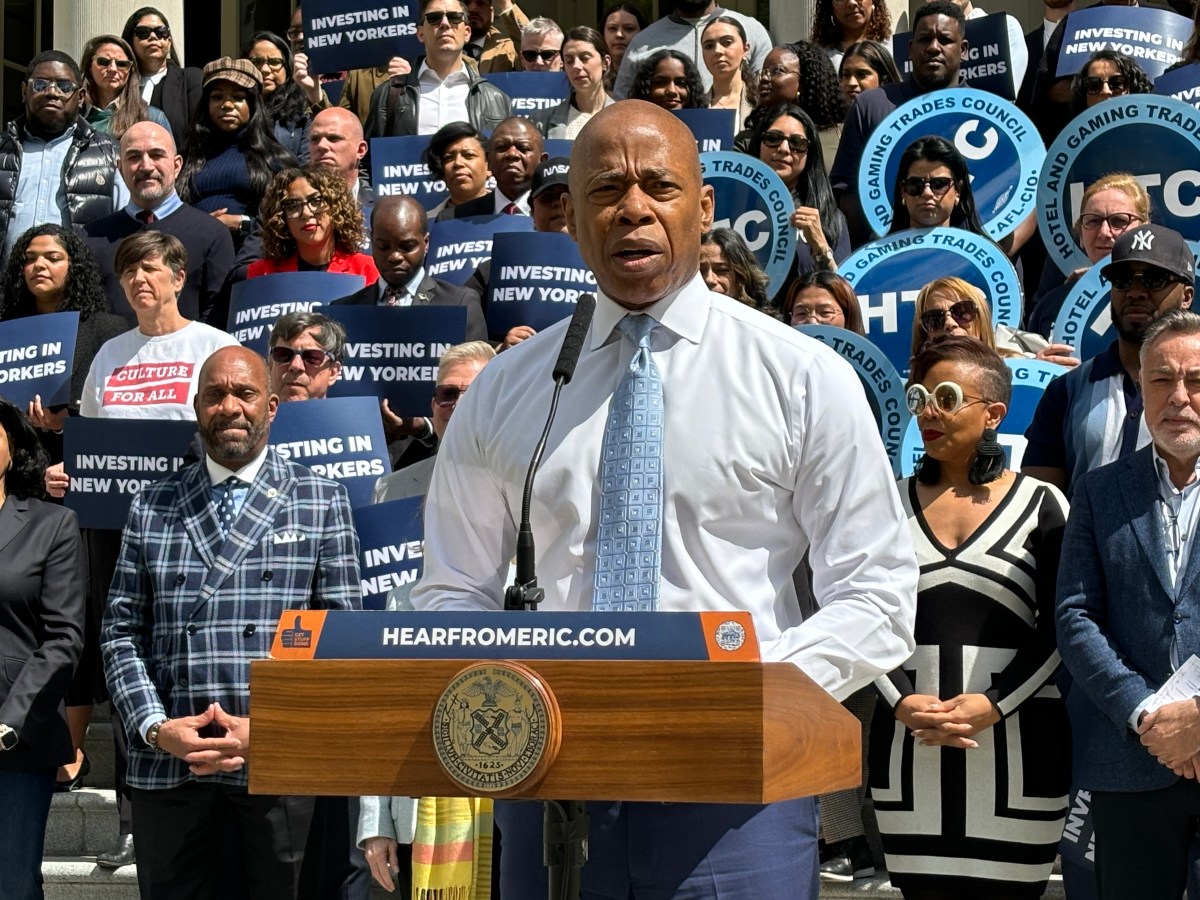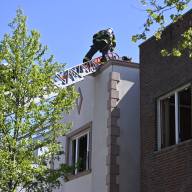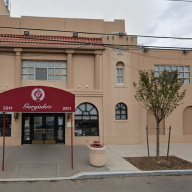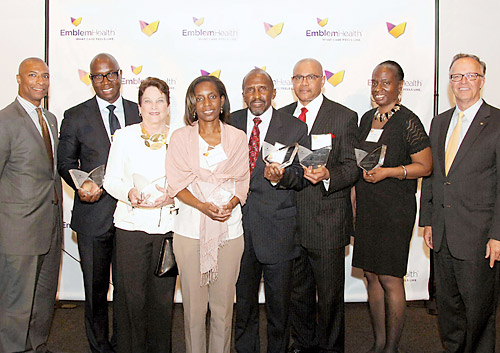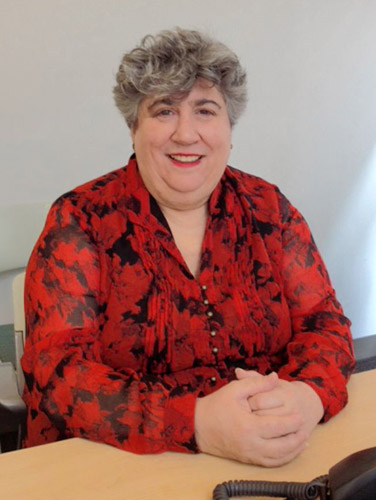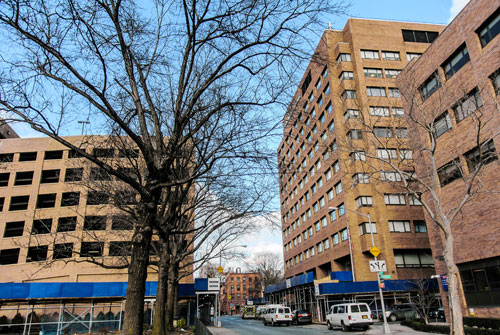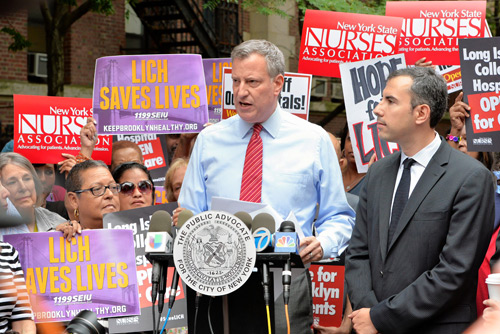Earlier this year, a Crown Heights dad got a new lease on life after he became the first person in the Northeast to receive a life-saving triple organ transplant of the heart, lungs and kidney.
In March of 2022, 40-year-old Steve Quinn underwent a lengthy and rare — but successful — procedure at NYU Langone Health in Manhattan, making medical history, and changing the course of his life for the better.
“I now have the energy to be a participant in my daughters life, rather than be an observer,” said Quinn, whose daughter, Ciara, is one-and-a-half years old.
This is not the first time Quinn has needed a transplant. At 23, Quinn fell very ill in a short period of time. What doctors initially thought to be an upper respiratory infection turned out to be chronic kidney failure caused by a rare autoimmune disease called Goodpasteur Syndrome, which prompted his immune system to attack his kidneys.
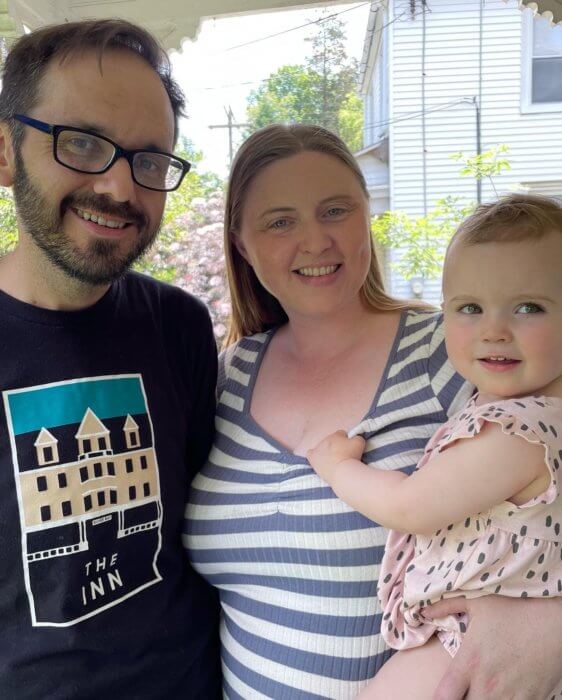
After three years on dialysis, Quinn underwent a kidney transplant, receiving a new kidney donated by his brother.
“After my brother gave me his kidney, I let him have my Netflix password,” he joked.
Quinn relocated to New York City from Texas to work in comedy and eventually have a career as an audio book narrator.
Fourteen years after his first kidney transplant, in June 2021, Quinn began to have trouble breathing. After testing, Dr. Bernard Kadosh, cardiologist and heart failure expert at NYU Langone Health, determined that Quinn’s kidney and heart had to be replaced.
“We were doing hemodynamic studies on him. What we discovered was that he had extremely high pulmonary pressure. Looking at his CAT scan, we saw the blood vessels in his lungs were completely deformed,” said Dr. Kadosh. “What this meant is if we did the heart transplant alone, he would very likely not survive it.”
Steve was diagnosed with with infiltrative cardiomyopathy. This discovery made Quinn a candidate for a rare triple-transplant of the kidney, heart and lungs.
“It was definitely daunting,” Quinn said of learning that he would need a triple-organ transplant. “But, I trusted the science and the doctors.”
Upon diagnosis, Quinn stayed in the hospital for two months waiting for the organs to become available and preparing his body for the surgery. After a long wait, doctors say a miracle happened: a donor with all three organs became available.
The surgery to replace all three organs took 11 hours, and it was the first successful triple-organ transplant in the Northeast.
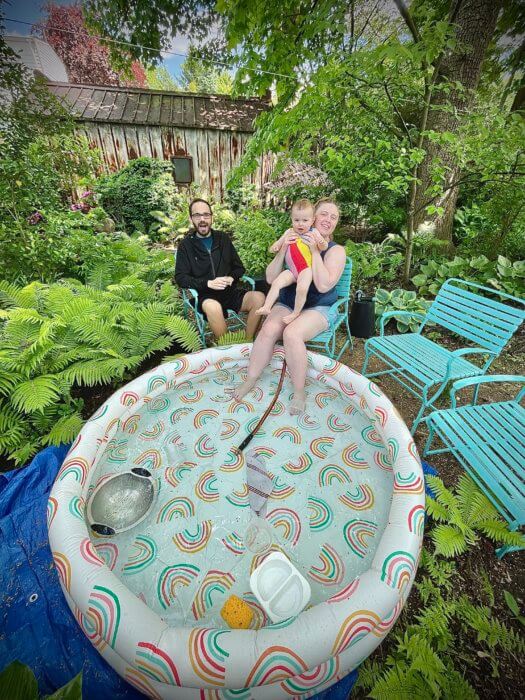
“When you wake up with a million tubes coming out of you, that’s really tough,” Quinn told Brooklyn Paper. “Even walking was difficult right off the bat. But, last night, I was playing with my daughter and chasing her around the house. That wouldn’t be possible two months ago.”
An estimated 17 people die each day waiting for organ donations, according to the Organ Procurement and Transplantation Network.
Dr. Kadosh hopes that Quinn’s story illustrates the importance of organ donation. After all, Quinn would not be able to get the treatment he needed if it were not for a donor offering up their organs for someone else to use.
“New York State is ranked second lowest in the United States for registered organ donors,” said Dr. Kadosh. “It is important to me and the patients to get the message out that organ donation is important. It can turn a tragedy into a better life for someone else.”


